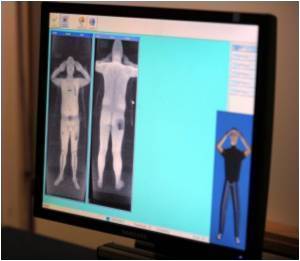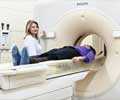Study says new low-dose abdominal computed tomography (CT) technique called adaptive statistical iterative reconstruction (ASIR) can reduce the radiation dose associated with abdominal CT scans

ASIR is a technique that allows radiologists to reduce the noise in an image and improve image quality (like adjusting a TV antenna to make a "fuzzy" image sharper) while reducing the radiation dose.
The study, performed at the Mayo Clinic in Scottsdale, AZ, included 53 patients who underwent contrast-enhanced abdominal low-dose CT with 40 percent ASIR. All 53 patients had previously undergone contrast-enhanced routine-dose CT with filtered back projection (FBP). The average dose reduction using the ASIR technique (compared to routine-dose CT with FBP) was 66 percent for patients with a body mass index (BMI) of less than 20 and 23 percent for patients with a BMI of 25 or greater. "A significant difference," said Amy K. Hara, MD, lead author of the study.
"The results of this study show that low-dose abdominal CT with ASIR is a viable technique with image quality that is nearly comparable to that of our routine dose techniques and is worthy of further study," said Hara.
Source-Eurekalert














